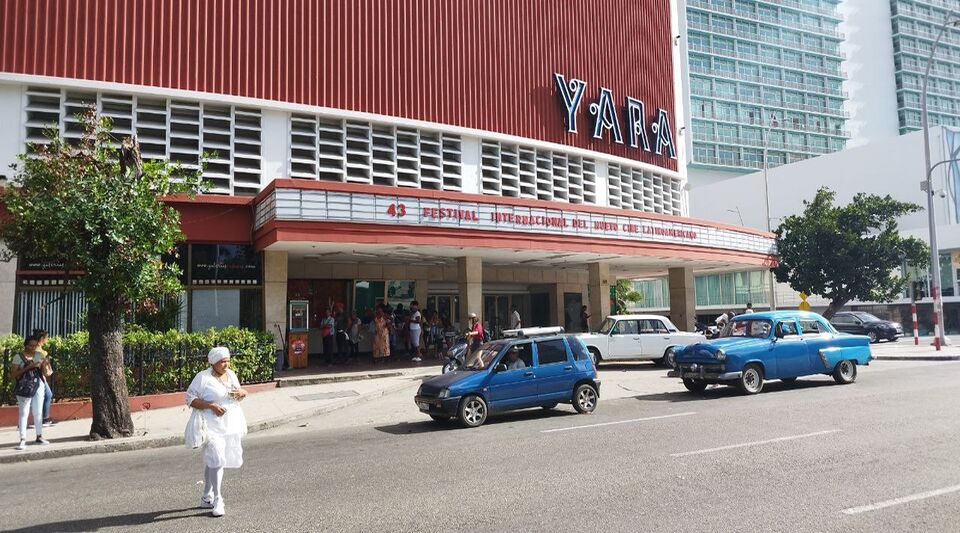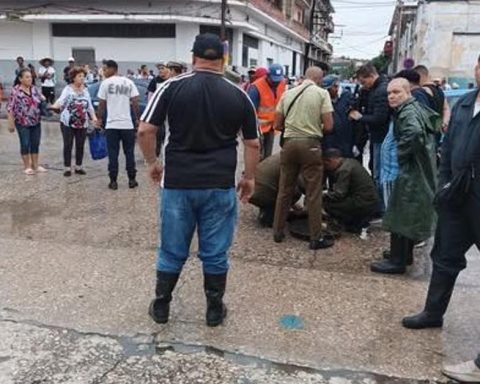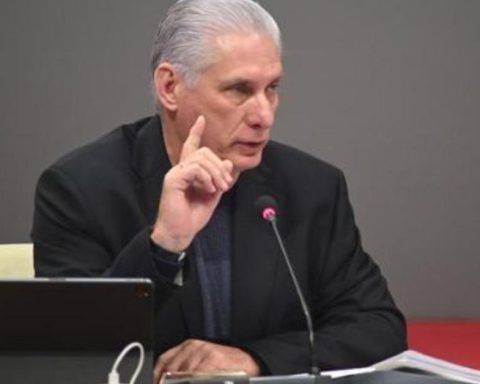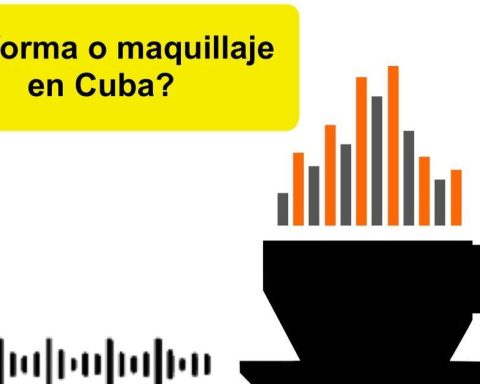The censorship of several films, the logistical deficiencies and the public booing of the Minister of Culture, Alpidio Alonso, marked the beginning of the 43rd Festival of New Latin American Cinemainaugurated this Thursday in Havana.
“For the situation that Cuba has, that the festival is held is already a miracle,” he told 14ymedio a worker at the Cuban Institute of Cinematographic Art and Industry (Icaic) who prefers to remain anonymous. “It is being held with a lot of effort and in the face of many obstacles, not only economic but also political.”
The film industry, bled dry by emigration and ideological censorship, attended the opening ceremony at the Chaplin Cinema. At the beginning of the gala, the actress Andrea Doimeadiós began to introduce the attendees, among whom were Inés María Chapman, Deputy Prime Minister of Cuba, and Rogelio Polanco, head of the Ideological Department of the Communist Party, which is traditionally in charge of evaluating the films.
“When Alpidio Alonso’s turn came,” says the ICAIC worker, present at the ceremony, “among the few applause, many people from the public booed him. It must be clarified that it was not everyone, but in a cinema where more than a thousand people fit, the noise was clearly heard throughout the venue.”
The film industry, bled dry by emigration and ideological censorship, attended the opening ceremony at the Chaplin Cinema
From humiliation to the Minister of Culture, remembered for an episode of violence against artists and reporters in front of the ministerial building in January 2021, attested to social networks several Cuban activists and filmmakers.
The festival began with the premiere of Argentina, 1985 –a film about the trials of dictator Jorge Rafael Videla and the military juntas from 1976 to 1983– that achieved the immediate shock of the spectators. “Many people had already seen her, because she arrived in the package a few weeks ago,” says the official interviewed by this newspaper. “Even so, they wanted to go see it on the big screen.”
“The public liked it a lot, they felt identified and they applauded a lot with some dialogues,” he says. “Perhaps the explanation is that people saw what could happen in Cuba tomorrow. The common points that all dictatorships have. And they were reflected.”
However, laments the man, there was no “thermometer” of criticism. “Unless someone outside of Cuba has a relative or a friend who tells them what the world is seeing, people have no idea what to expect at the festival.” “Neither was there any media figure who came representing any movie,” he says. “We weren’t expecting anyone this year.”
The censorship of the film Vincent B.by the young Cuban filmmaker Carlos Díaz Lechuga –recently exiled in Spain– was one of the topics of conversation between the filmmakers and attendees, says the source contacted by 14ymedio.
“The public liked it a lot, they felt identified and applauded a lot with some dialogues”
“Since Lettuce began to write his post People here were alarmed on social networks,” he points out, alluding to the filmmaker’s complaints about repression and censorship on the island. “At the organizers’ press conference, something obvious was suggested: the festival has its own board, but the decisions end up being taken by ICAIC. This, in turn, is subordinated to the Ministry of Culture and the Party, which is the one that governs everything.”
“It was not a surprise,” he admits, “we have already experienced it many times. It is annoying, but we are used to it, although one should not get used to these things.” He asserts the source that the same thing did not happen when State Security disapproved Santa and Andrewthe previous film by Lettuce.
“There was more pressure from the artistic union, but now the same thing is not happening. Perhaps because Carlos is far away, and solidarity in the distance is not the same as when the affected person is here,” he argues.
“It is known that this censorship is not directed at a certain work, but at the author. And I can assure you that this decision was not made by ICAIC, even though it presides over the festival. The directive became a harakiri oriented by State Security. They had to confront Carlos’ statements. Those words were not written at ICAIC, but the institute has a function: to respond, to show its face.”
That of Lettuce is not the only unfortunate absence. Other usual faces in the cinemas and collateral activities of the festival are missing. “It is strange to no longer see Carlos, Claudia Calviño, Arturo Infante… there are many who have left. Those of us who stayed have lost our capacity for wonder, to call it something. We are no longer surprised to know that some friend or artist left the country,” he says.
“Censorship ends up affecting the censor as well and, unfortunately, not everyone ‘governs themselves’ in Cuba”
The New Latin American Film Festival will exhibit this year 185 films, which will have to be shown in the four cinemas set up in the so-called “circuit of 23” –Chaplin, 23 and 12, Yara and Acapulco–, a huge amount for the few projection resources with which the island has.
It is a more austere event than other editions, where transport “is perhaps the worst” and logistics have decreased in quality, says the source consulted by 14ymedio. In the midst of everything, he underlines, the work of the organizing team should be highlighted, which fights to keep the festival going despite political tensions and material deficiencies.
“One always wants to do the festival, above the problems,” he says. “Censorship ends up also affecting the censor and, unfortunately, not everyone ‘governs themselves’ in Cuba: not the filmmakers, not the president of ICAIC, and much less the Minister of Culture.”
________________________
Collaborate with our work:
The team of 14ymedio He is committed to doing serious journalism that reflects the reality of deep Cuba. Thank you for accompanying us on this long road. We invite you to continue supporting us, but this time becoming a member of our newspaper. Together we can continue transforming journalism in Cuba.















